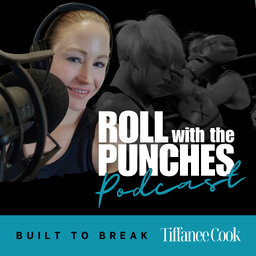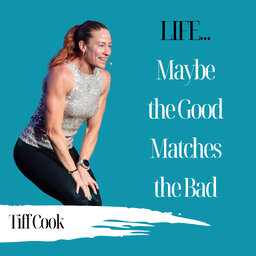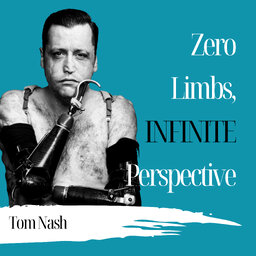For Simon, For the Ones Still Standing | Tracie Lund - 909
Well… this one punched me right in the heart. And honestly? It still hasn’t let go.
Tracie Lund is someone I’ve crossed paths with before. She's nothing short of a powerhouse in her community, someone who speaks up, shows up, and gets sh*t done. But nothing could have prepared me for the conversation we had this time around.
Just over one week after we recorded this episode and before bringing this to air, Tracie’s husband Simon passed away.
Simon had dedicated 26 years to serving on the front lines with the CFA. But when he was diagnosed with stage 4 oesophageal cancer... a diagnosis that was aggressive, terminal, and fast. The Lund family found themselves not only navigating devastating personal loss, but also uncovering a painful gap in the very system Simon served.
Despite working side by side with firefighters, despite breathing the same toxic smoke, despite responding to the same critical incidents, Simon’s role wasn’t recognised under the current presumptive legislation. Which meant no automatic support. No protection. No justice.
This conversation is emotional, raw, and powerful. We talk about love, legacy, the brutal reality of terminal illness, and the sheer courage it takes to stand up and speak out when you're already carrying more than anyone should have to.
Tracie shows us what it really means to be resilient. Not the neat, polished version. The real, messy, human kind. The kind that keeps fighting when it hurts. The kind that demands change, even in your final days, so no one else has to go through the same thing.
Please listen. Please share. Please sign the petition (link in the episode show notes). Let’s help Tracie finish what Simon started.
This one’s for him.
SPONSORED BY TESTART FAMILY LAWYERS
Website: testartfamilylawyers.com.au
SIGN THE PETITION
Website: parliament.vic.gov.au/
TIFFANEE COOK
Linktree: linktr.ee/rollwiththepunches/
Website: tiffcook.com
LinkedIn: linkedin.com/in/tiffaneecook/
Facebook: facebook.com/rollwiththepunchespodcast/
Instagram: instagram.com/rollwiththepunches_podcast/
Instagram: instagram.com/tiffaneeandco
 Roll With The Punches
Roll With The Punches


